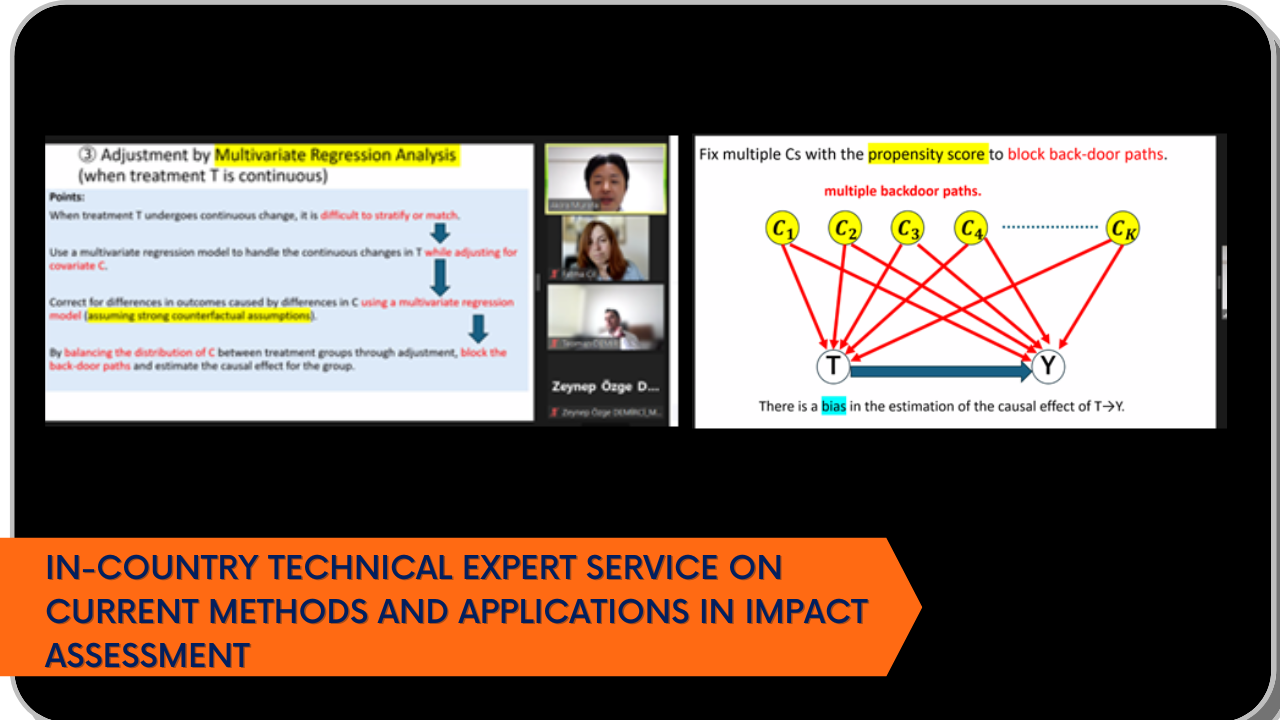
Select Page

To enhance the understanding and application of impact assessment methodologies in Turkiye, the Ministry of Industry and Technology, Directorate General for Strategic Research and Productivity (NPO Turkiye), along with the APO Secretariat, organized a project on Current Methods and Applications in Impact Assessment. The online in-country Technical Expert Services (TES) project was implemented in two phases on 22 and 24–26 April. It focused on contemporary methods for and approaches to impact assessment studies and provided in-depth applied training on quantitative and qualitative methods.
Impact assessment plays a crucial role in productivity management across various sectors. In the public sector, especially within APO members, evaluating the effects of policies and allocating resources efficiently are essential. Public-sector employees and experts working in evaluation-focused roles can significantly benefit from the insights provided by this TES project. Facilitated by two experts from Japan, the project covered estimation methods, a review of linear regression for causal inference, and fundamental principles. Practical exercises included building and interpreting regression models, applying causal nonlinear inference, and integrating qualitative insights to bridge qualitative and quantitative methods. It was attended by 35 participants.
By equipping participants with comprehensive insights into both quantitative and qualitative approaches, the project met a critical need for updated knowledge in this field. In practical terms, qualitative and quantitative impact assessment methods are chosen based on the type of support and data availability. Quantitative methods involve matching organizations that benefit from public incentives, such as technology investment or R&D, with similar organizations that do not receive support to determine the effects of the incentives. This updated knowledge of current impact assessment methodologies will support a fairer, more efficient distribution of resources in Turkiye, helping the country build productivity management capabilities.